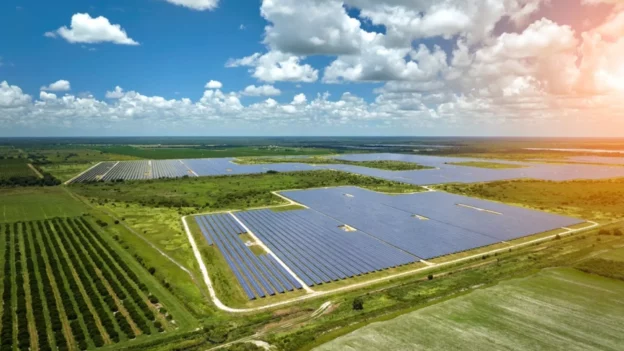The Italian government has decided to veto the placement of new solar panels in productive crop areas , the agriculture ministry announced. This decision was announced last Monday and will also apply to the expansions of existing solar installations in these areas , it was reported in an official statement.
Exceptions in agricultural solar panels
The Minister of Agriculture, Francesco Lollobrigida, stated in a press conference that this resolution aims to stop the uncontrolled proliferation of photovoltaic installations on agricultural land. However, it was noted that there will be certain exceptions to this prohibition, such as solar plants on non-productive land, projects financed by the recovery and resilience plan and agrivoltaic projects, which allow dual use of the land.
On the other hand, the Minister of Energy, Gilberto Pichetto Fratin, revealed that Solar installation projects on agricultural land that are already in the authorization process could also be exempt from this prohibition. However, this measure has generated controversy, being criticized by Italia Solare, a solar energy interest group, which described it as short-sighted.
Solar energy: risks and challenges for 2030
According to Paolo Rocco Viscontini, president of Italia Solare , this restriction ignores previously established commitments and could put Italy’s 2030 goals at risk. Lorenzo Bocci, a renewable energy developer, also expressed concern , highlighting that the exclusion of new photovoltaic plants, except for agrivoltaics, could raise costs significantly.
In the latest draft update of the energy and climate plan, presented by Italy to the European Commission in June, it was planned to install 131 GW of renewable energy by 2030, including 80 GW of solar energy, 28 GW of wind and 19 GW of hydroelectricity. .
Despite the restrictions, Italy continues to look for ways to integrate renewable energy into its energy mix. This focus on agrivoltaics may represent an opportunity for innovation at the intersection of agriculture and renewable energy generation, paving the way for more sustainable and efficient practices that could serve as a global model.
Follow us on social networks and don’t miss any of our publications!
Inspenet.com YouTube LinkedIn Facebook Instagram X
Source: montelnews
Photo: Shutterstock

